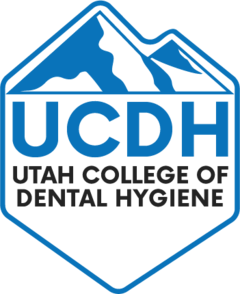COPYRIGHT AND TRADEMARK ACT COMPLIANCE It is unlawful, and against college policy to violate established copyright and trademark laws of the United States by using any college property, equipment, or facilities, to violate the established copyright and trademark laws of the United States. All information or documents relating to the program (tests, quizzes, syllabi, class outlines, schedules, and/or any other program or clinic related forms) are the sole property of Careers Unlimited L.L.C. and the Utah College of Dental Hygiene. These materials are copyrighted and may not be sold, duplicated, copied, reproduced, distributed, or electronically transferred without violating the copyright laws of the United States. Any attempt to do so by any student, faculty, staff, or visitor on the campus will be a violation of college policy and applicable local State and Federal laws relating to copyright and trademark violation and may be subject to prosecution to the fullest extent allowable under the law. PEER-TO-PEER FILE SHARING POLICY Students will not share or distribute any unauthorized copyrighted materials, including peer to peer unauthorized file sharing, as it may result in civil and criminal liabilities, as well as dismissal from the Utah College of Dental Hygiene. Students will be informed of the Peer to Peer File Sharing Policy and possible consequences of copyright infringement annually, in adherence to 34 CFR 668.43 (a) (10), 34 CFR 668.41 (c) and 34 CFR 688.14 (b) (30). Violation of Policy If a student violates the Peer to Peer File Sharing Policy:
Possible Civil and Criminal Liabilities The student may be subject to civil or criminal prosecution under the Copyright Law of the United States. Infringement of copyright may result in the copyright owner recovering actual damages and any additional profits of the infringer or statutory damages from $750 to $30,000. If willful infringement is proven, the court may increase damages up to $150,000 (Copyright Law of the U.S., Section 504). Criminal infringement, any person who willfully infringes copyright for commercial gain, is subject to fines, as well as imprisonment up to five years (Copyright Law of the U.S., Section 506). |
Utah College of Dental Hygiene
